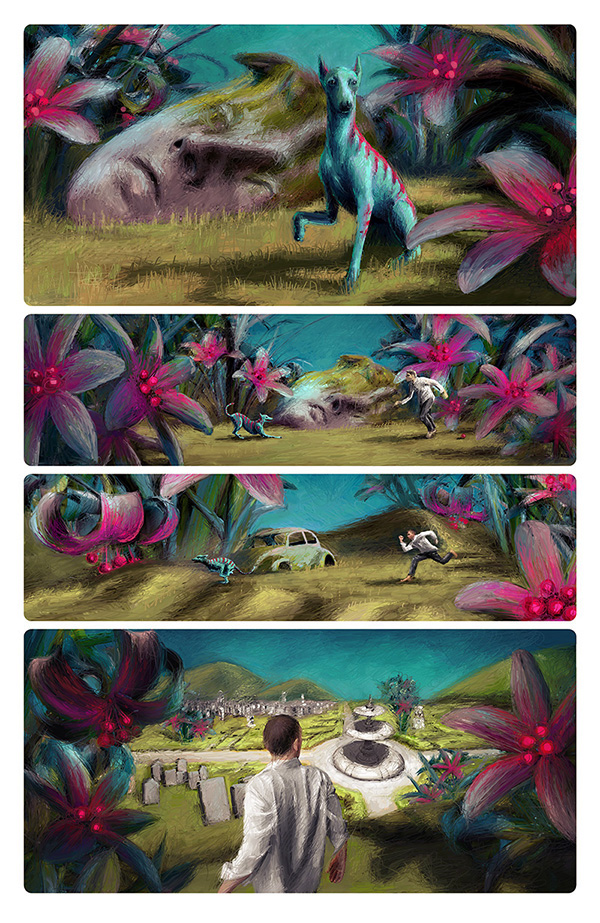Around the world, comics have been embraced as literature and a medium for free speech. Russia is no exception. In a recent editorial piece on Vice News, Thomas Carey Frazier shares his experiences visiting the country’s Astro Con and the “strange and beautiful” indie comics scene that has emerged in the past five years.
From Maus being pulled from Russian bookshelves to artists seeking asylum for displaying their art, creative industries in Russia have faced many challenges when it comes to free expression. “Over the last 30 years, the attempts to start a comic book scene have been hampered by Russia’s national tumbles,” writes Frazier. Whether it be crippling national debt or the difficulty artists have make a living producing what they love, “any true interest in Russian comics has only really returned in the past five years.”
Artist Ivan Eshukov describes the difficulties artists face: “Comic artists receive some fees for their published work, but it isn’t money that you can live on in Russia.” Eshukov himself paints murals for private clients to make ends meet.
Further, Russian artists don’t have the same protections that their American counterparts do. Konstantin Dubkov, a comic book artist who founded the Ural Comics Institute, spent some time in the United States, where he encountered people who were very willing to show off American works but knew little — or had little interest in — Russian comics. Dubkov also encountered CBLDF in his travels, and laments the lack of a similar organization protecting artists in Russia.
Although the indie comics scene in Russia has faced these difficulties and has really only just recently taken hold, Frazier points out that it has done so with gusto, producing some of the most eclectic and diverse works seen in modern comics. From your more traditional comic book fare produced by Bubble, the largest Russian comics publishing house, which opened its doors only five years ago, to the surreal explorations of Moscow-based artist Nikolai Pisarev, whose colorful works present painted narratives, the breadth of talent coming out of Russia is not only staggering, but reassuring.
For so long, creators haven’t had the space to create, but that is changing. With the foundation of conventions like Astro Con, put on by the cartoon collective Astro Dogs, comic book creators are manufacturing spaces where they can share ideas and continue to create. As Nikolai Tsepelev of Astro Dogs notes, instead of wistfully longing for a space to create to come to Russia, comics creators simply took matters into their own hands and “made it happen.”
Although there are still challenges, the burgeoning comics scene continues to grow. As Ivan Eshukov, a mural painter by day and comic artist by night, points out, Russian artists—like others around the world—there is an inherent love of the medium and its flexibility. “With comics, you can convey anything you want.”
Read the entire article and view of the eclectic art coming out of the Russian comics scene here.
Help support CBLDF’s important First Amendment work in 2015 by visiting the Rewards Zone, making a donation, or becoming a member of CBLDF!
Contributing Editor Caitlin McCabe is an independent comics scholar who loves a good pre-code horror comic and the opportunity to spread her knowledge of the industry to those looking for a great story!
